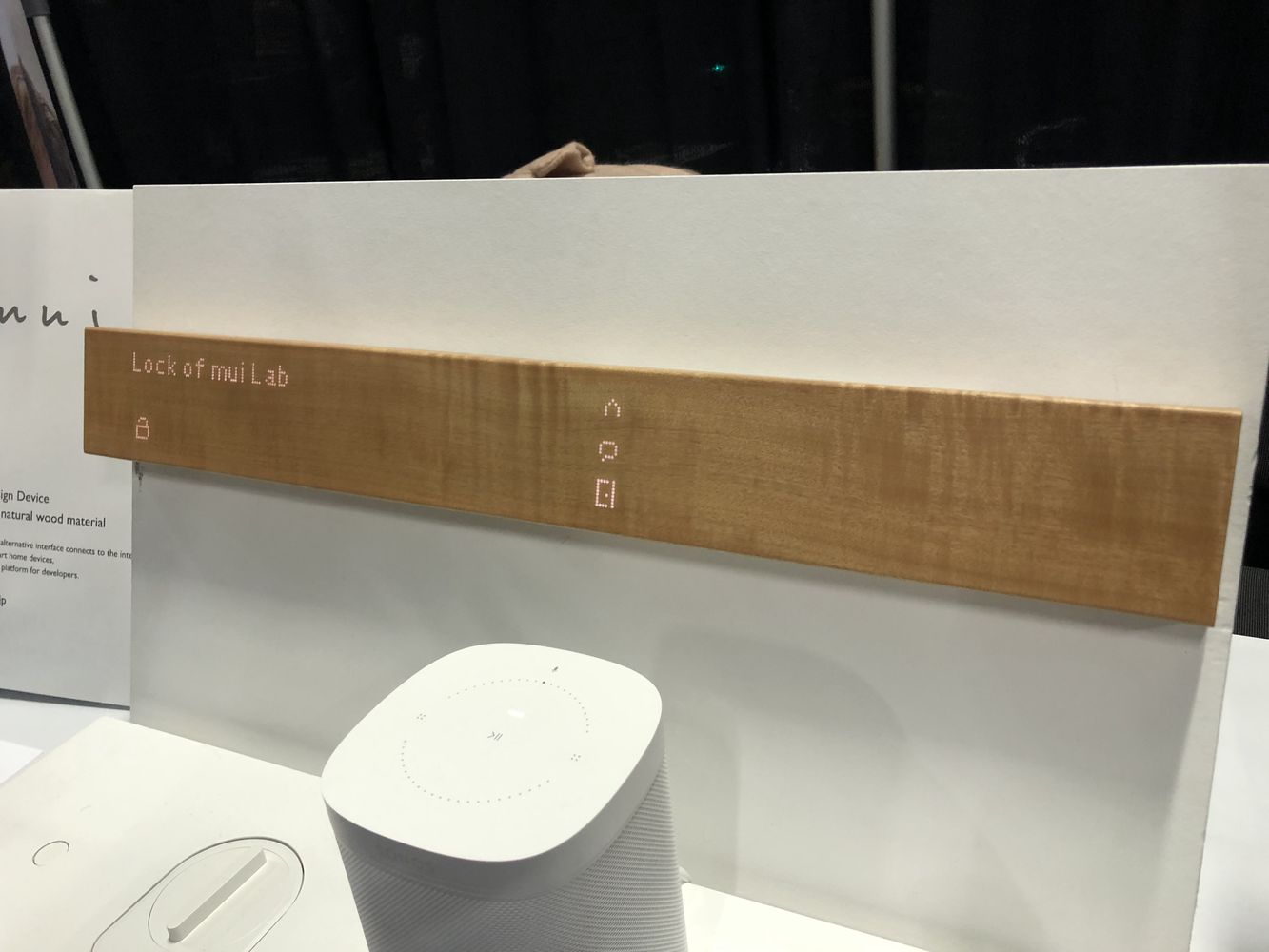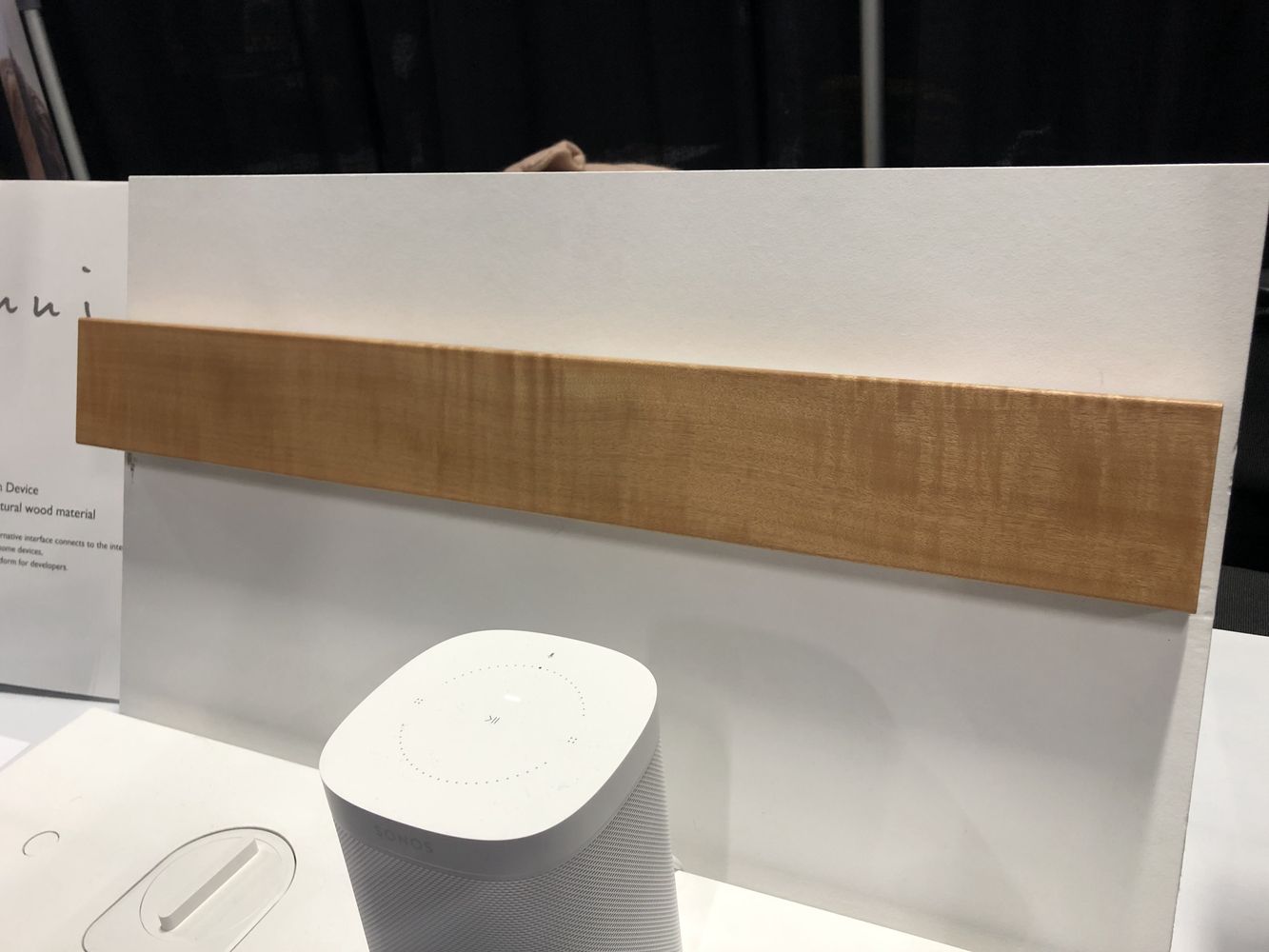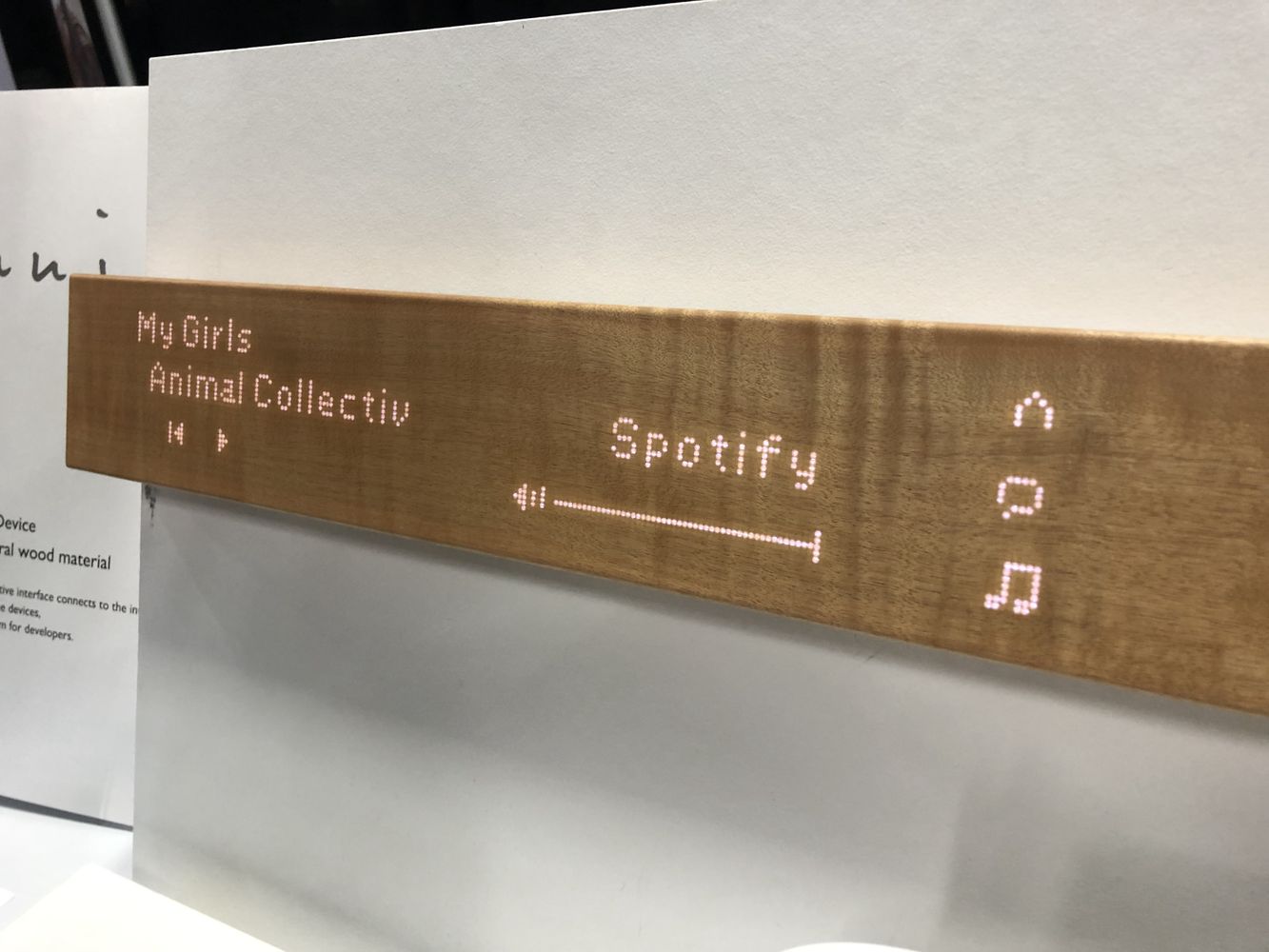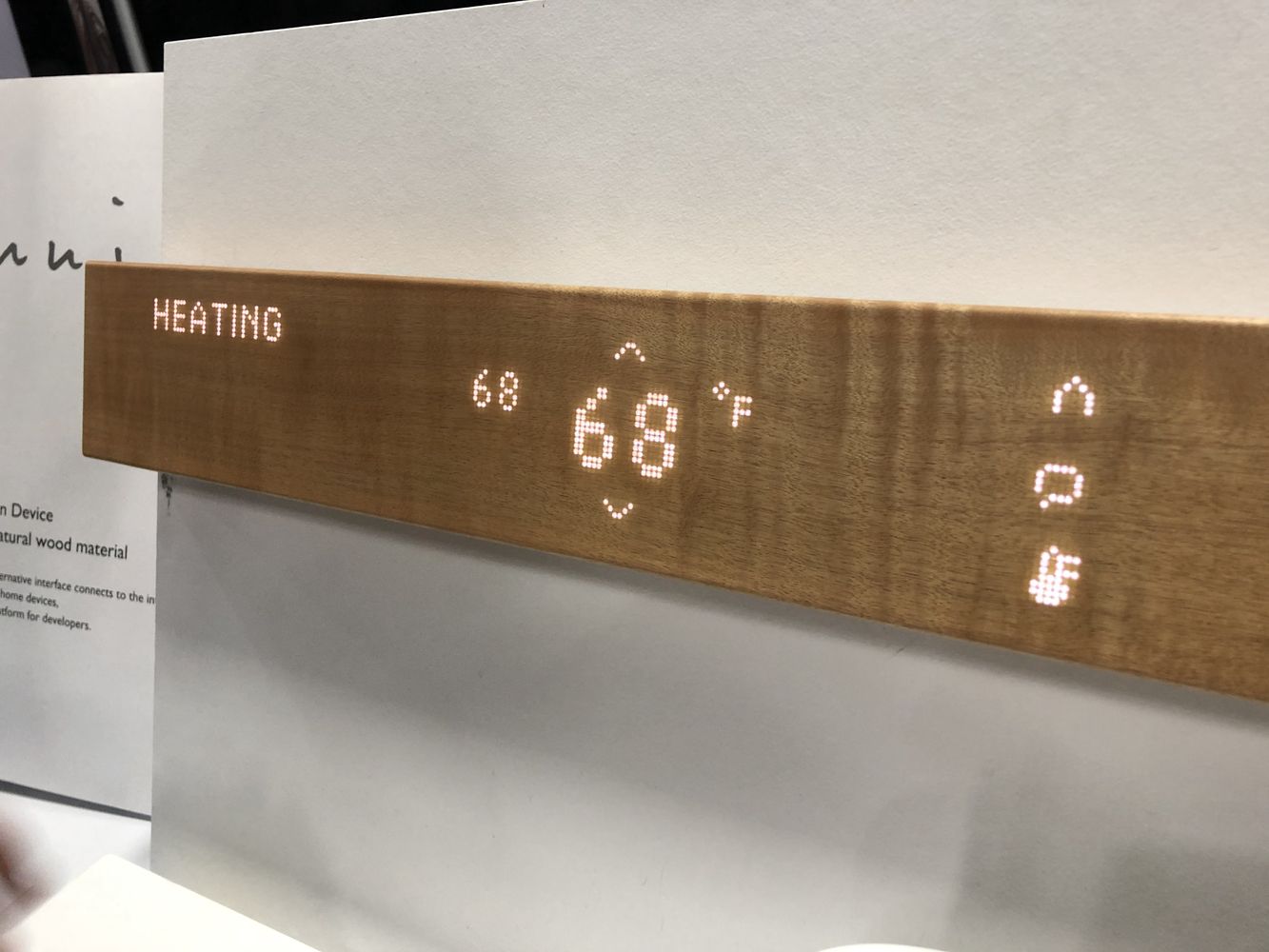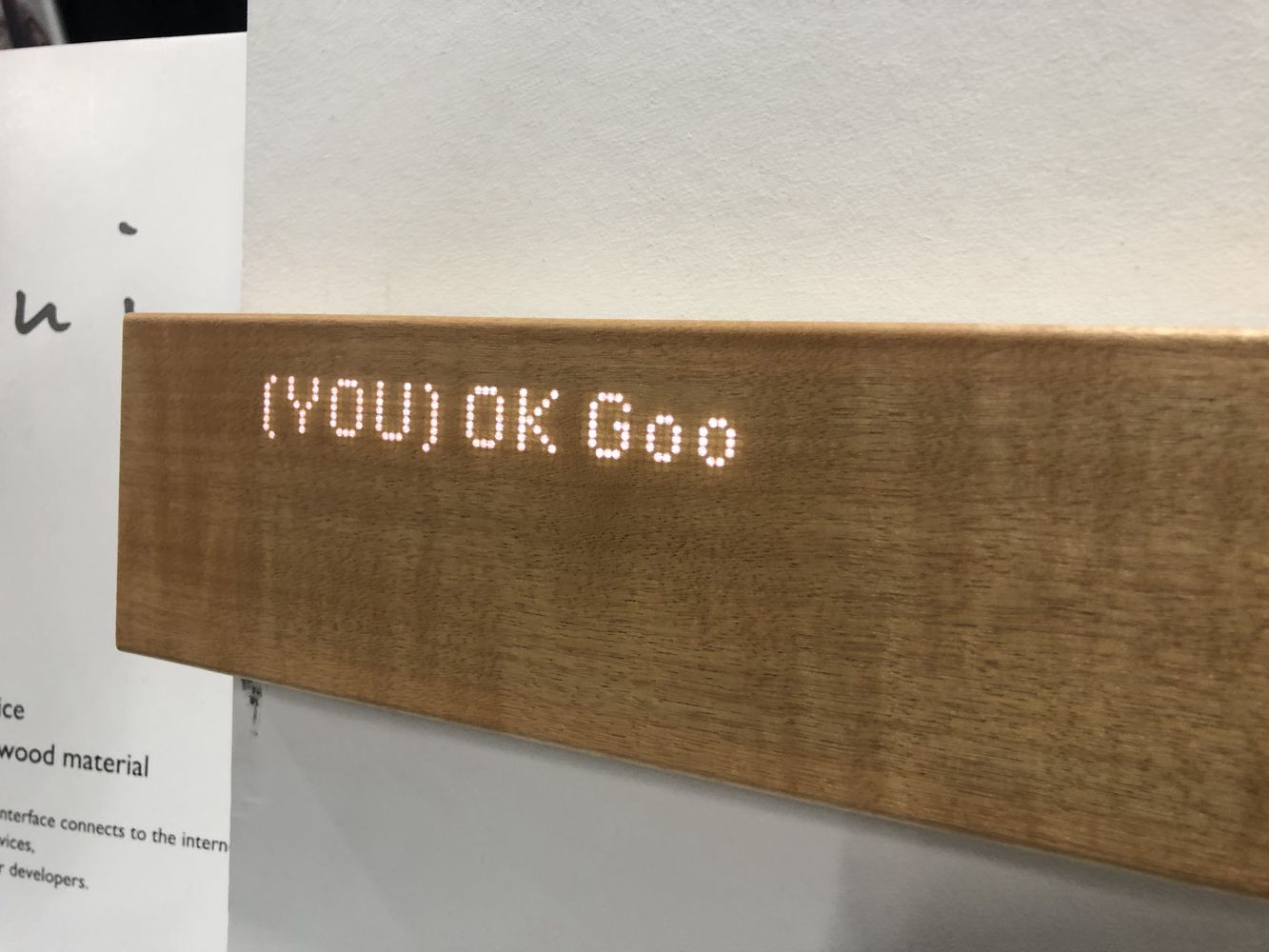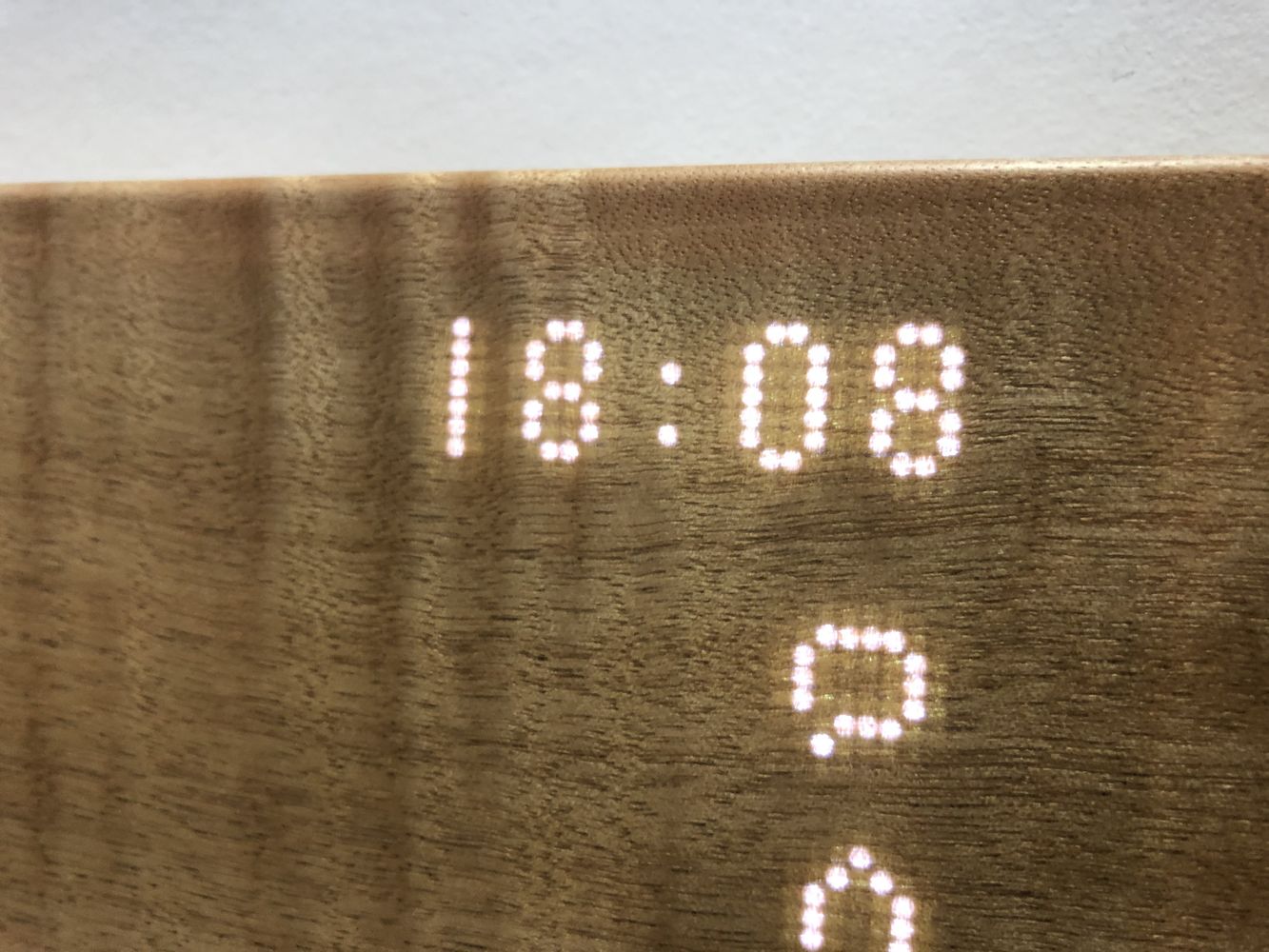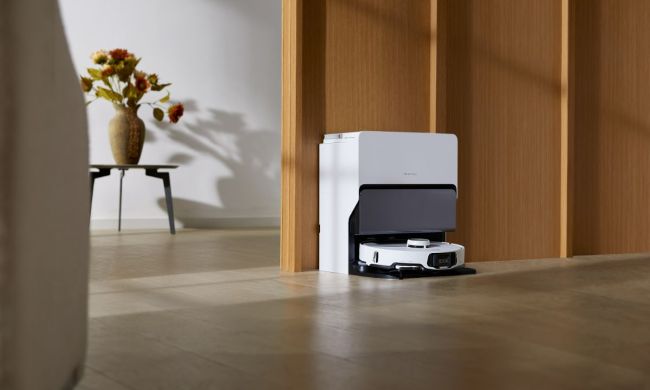What does it mean that one of my favorite demos at CES 2019 — the world’s foremost technology show — was a block of wood? Maybe that I’ve been spending too much time in my garage with a table saw. Maybe that we’re collectively suffering from a bad case of screen fatigue. Maybe both. But if the crowd surrounding Mui is any indication, I’m not the only one smitten with the Kyoto-based company’s head-smackingly simple approach to technology.
More CES 2019 coverage
- Complete CES 2019 Coverage: News, Reviews, Videos and Analysis
- Key by Amazon adds keyless entry to garages, Ring devices, business properties
- Daikin One+ smart thermostat can listen as well as talk to Daikin HVAC systems
- Samsung is enhancing its Family Hub Fridge and washing machine
Mui launched on Kickstarter back in October, but this is the first time we’ve seen it in person — and it makes all the difference. Mui looks like something you’d buy at a lumberyard, not Best Buy. When it’s turned off, you might understandably wonder what it’s doing at CES, but ask it a question and an array of hidden LEDs light up to display anything from the weather to the current state of your front door.
That makes it, by any conventional measure, a smart display. You can turn up your thermostat, play music, or any of the same functions you could do with Google Home. But the real innovation here is the way it conveys that information.
Since the LEDs are hidden under a thin veneer of wood, they remain completely invisible until they light up. When they do, each letter and number has soft, hazy edges, a bit like the display in the Nest E Thermostat. The effect is so subtle, it almost looks projected upon the wood. It’s touch-sensitive too, so you can tap on the wood and interact with the display hiding underneath.

Mui calls it “calm design,” and while it’s easy to dismiss this kind of Kickstarter-friendly jargon with an eye roll, it’s solving a real problem. As smart home gadgets have proliferated, screens have trotted right along for the ride, popping up in everything from fridges and ovens to robot vacuums. My Brilliant light switch even has one, shining angrily from my hallway every time I ask Alexa to dim the living room lights. Frankly, they’ve gone from futuristic-looking to distracting, ugly, and obnoxious.
Do I need a smart plank on my wall? Probably not, and for a princely $499 on Kickstarter, neither do you. But Mui representatives told us that the company envisions eventually building its display into other form factors, like car dashes and appliances. And while Tesla owners would probably disagree, that’s a good thing. We could all probably do with one less black mirror in our lives.
